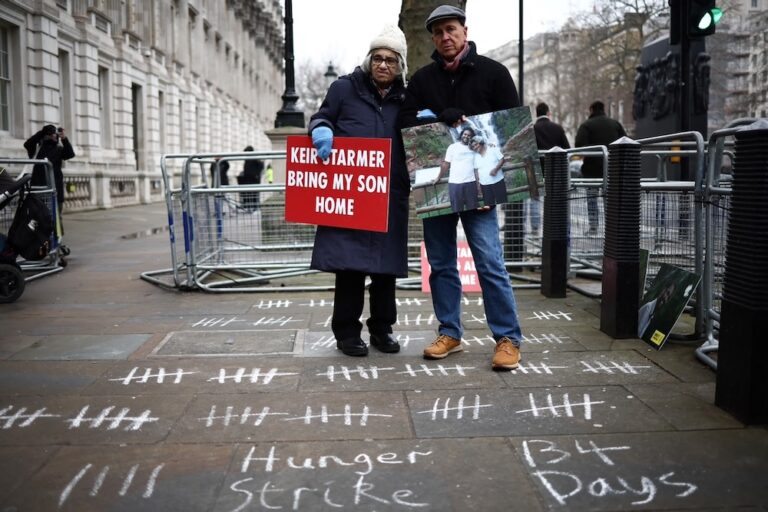Alaa Abd el-Fattah objected to questioning by military prosecutors and demanded any case be handled by civilian authorities; the military prosecutor responded by ordering his detention for 15 days pending investigation.
(CPJ/IFEX) – New York, October 31, 2011 – Egyptian blogger Alaa Abd el-Fattah, jailed Sunday after he objected to interrogation by military prosecutors, should be released immediately and without condition, the Committee to Protect Journalists said today.
The military prosecutor’s office summoned Abd el-Fattah for questioning concerning his coverage of the October 9 clashes between troops and Coptic Christian protestors, local and international news reports said. At least 25 people, including a journalist, were killed in the clashes.
Abd el-Fattah, a critic of Egypt’s practice of subjecting civilians to military proceedings, objected to questioning by military prosecutors and demanded any case be handled by civilian authorities. The military prosecutor responded by ordering his detention for 15 days pending investigation, according to several news reports. On Sunday, the military prosecutor filed several charges against Abd el-Fattah, including “inciting violence against the military,” “assaulting military personnel,” “destroying public property,” and “stealing military weapons,” news reports said.
Abd el-Fattah and his wife and fellow blogger, Manal, have been outspoken detractors of the military regime on their blog, Manalaa. On October 20, Abd el-Fattah wrote an opinion piece in the independent daily Al-Shorouk in which he criticized the military’s investigation of the clashes, saying it could not conduct an impartial investigation into its own activities. The piece detailed Abd el-Fattah’s view of the October 9 clashes and the two ensuing days he spent at the morgue, encouraging victims’ families to demand autopsy reports. Abd el-Fattah’s article was sharply critical of the military, referring to it as “Mubarak’s military.”
Cameraman Wael Mikhael was killed by a gunshot to the head and two television studios were raided by security forces during the October 9 violence. CPJ reviewed Egyptian state television’s coverage of the clashes and concluded that it was inflammatory.
“It is the height of hypocrisy for the ruling military council, the self-proclaimed guardian of the revolution, to try to intimidate critical voices through military trials and contrived criminal charges, instead of addressing some of the fundamental questions they are raising,” said Mohamed Abdel Dayem, CPJ’s Middle East and North Africa program coordinator. “The military must release Abd el-Fattah immediately and drop all charges against him. Failure to do so belies claims that authorities have broken from the intimidation tactics of the past 30 years.”
In 2006, Abd el-Fattah was detained for 45 days without charge after writing in support of reformist judges and better election monitoring, CPJ research shows.


